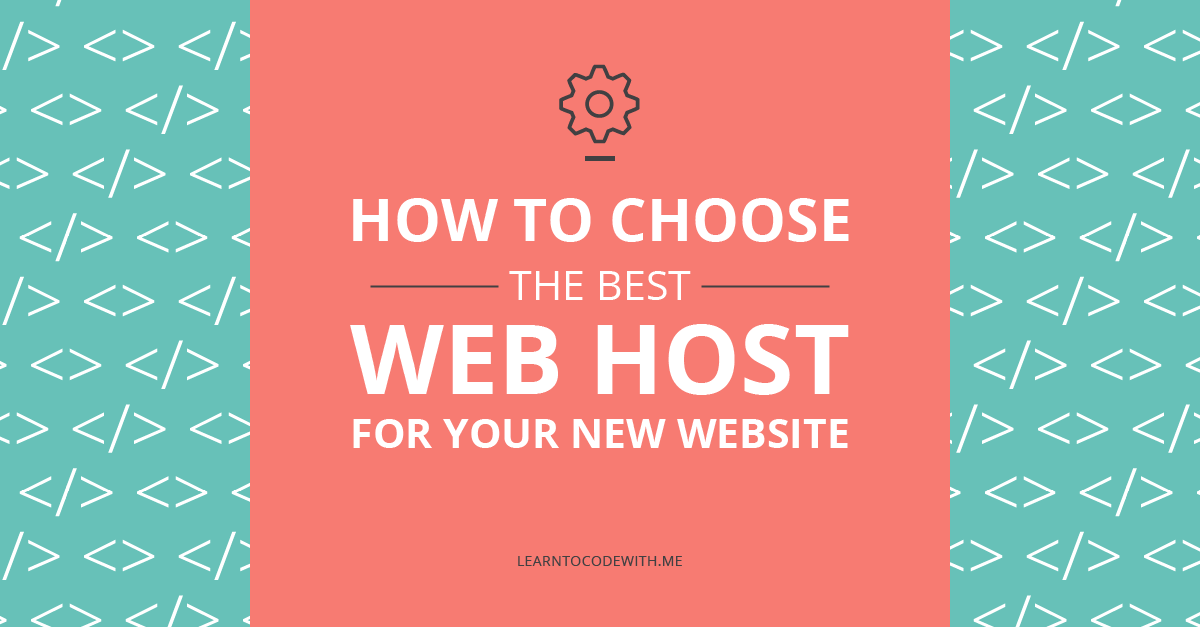Choosing the best web host for your website can be a confusing process and not one you should take lightly.
So what factors should you consider when choosing a web host? In this sponsored post, Robert Mening from websitesetup.org shares six tips for choosing the best web host, from researching speed and reliability to exploring security features.
Take it away, Robert!
—
If you’re just getting started with learning to code and don’t yet have a web host, it likely won’t be long before you begin the search for one so you can set up your first website and put your coding skills to the test.
However, with so many web hosting companies out there, it’s not easy to know which one to work with–and it’s definitely not a decision you should make at random either. With that in mind, use the following tips to help you choose the best web host for your next web project.
1. Consider Your Specific Needs
Unfortunately, choosing the best web host isn’t as simple as picking one from a list. Everyone’s idea of “best” will depend on their unique needs.
For example, if you want to start working with WordPress, you’ll be best off choosing a host like Bluehost or HostGator that’s popular among WordPress users. If you’re planning to run an e-commerce site, you’ll need a host that can accommodate the e-commerce software you want to use.
Before you start shopping for web hosts, sit down and outline what you need from a web host. Consider the following questions:
- What type of site will you be creating? For example, will you be working with WordPress or creating a static HTML website?
- Will you be creating more than one site? Some hosts allow you to create multiple sites from the same account.
- How much traffic do you expect to receive each month? Be realistic. This will help determine how much resources you need. If you plan to grow your traffic over time, you may need a host that offers scalability in their package offerings.
- What technical requirements will you require for your site? Most coding languages like HTML and CSS don’t have special requirements, but if you’re working with PHP, for example, you’ll need to find a host who can cater to that language.
- Do you need extra features, such as email hosting or an SSL certificate? Be sure the host you choose offers what you’re looking for (and at a reasonable rate).
- What is your monthly budget? Knowing this can help you weed out certain hosts and packages before you waste time comparing features of hosts outside your range.
2. Look Into Hosting Reliability and Speed
One of the most important things to consider when choosing a web host is the host’s reliability and uptime scores. Obviously, you want your site to be operating as often as possible. Even a few minutes of downtime per day can lead to lost revenue and a poor customer experience.
While no host can guarantee their servers will be active 100 percent of the time, there are many companies that boast uptimes of 99.5 percent and higher. Avoid hosting companies that report anything below 99 percent.
In addition to uptime, you’ll want to choose a host with fast servers. There are plenty of ways to speed up your website, but if your site is on a slow server, it doesn’t matter how many other tweaks you make to it; it will always be slow.
Speed may not seem important to a beginner with little web traffic, but it will become increasingly important as your site grows. According to KISSmetrics, a one-second delay in page speed reduces customer satisfaction by 16 percent. Furthermore, 40 percent of website visitors abandon a site that takes more than three seconds to load. Tiny delays can have a huge impact on your bottom line.
To find reliability and speed stats on a given host, start by looking at their website, and then browse through online reviews to get a feel for how other customers’ sites have performed with that host.

3. Know Your Upgrade Options
Generally, shared web hosting is a good place to start because it’s cheap and suits most beginners’ needs. However, your needs may not stay the same forever. As your website grows, you may find yourself needing more bandwidth, email storage, and other resources.
Don’t be fooled by unmetered or unlimited offers, either. In many cases, your service agreement will allow your host to throttle website performance after a certain amount of use, which can drastically slow your website speeds. Some agreements even allow hosts to shut down your site or require you to upgrade if you’re using up too many resources.
That’s why you’ll want to look for a host that offers room to grow. Though you might start out on a shared hosting plan, a host that also offers VPS hosting and dedicated hosting will be able to help you make the transition to a new server easier as your site grows.
4. Explore Security Features
Another important aspect to consider in a web host is their security features. This is especially true if you’re planning to run a website that stores or transports sensitive data, such as customers’ credit card numbers.
Start by looking at whether or not the host runs firewalls or malware detection on their servers. Ask them if they monitor their servers for unusual activity. Look for a host that offers SSL certificates to ensure that the data sent over your site remains secure and encrypted. Some hosts also offer IP deny services, which allow you to block specific IP addresses, such as those that might come from groups of hackers.
Finally, you’ll want to look into whether or not the host offers frequent site backups. Even with a range of security measures in place, it’s never a guarantee that your site won’t be hacked or compromised through another disaster. If your host offers backup services, you’ll be able to quickly restore your site in the event of a crisis.
Look for hosts that back up your site every 24 hours, especially if you plan to continuously update your site. That way, if any data is lost, you’ll only lose a few hours’ worth of changes.
5. Look for Quality Customer Support
Good customer support can mean all the difference with a hosting provider, especially if you need a bit of hand-holding to get your site up and running. During your research process, look to see what sort of support channels are available, such as live chat, email, or phone support.
Also take a look at each host’s support hours. Some hosts offer customer support 24/7, while others are only available during business hours, which can make them difficult to get ahold of when you need support ASAP.
Finally, read reviews for each host you look at to get a feel for the quality of support they offer. Look for reviews that mention how timely and knowledgeable (or not) the support staff is–keeping in mind, of course, that people often only leave reviews when their experience was either very positive or very negative, which might skew the feedback.

6. Research Prices
Obviously you want to choose a hosting package that suits your budget. However, when researching prices, it’s important to look beyond the initial monthly price you’re shown.
First of all, consider that many hosting providers feature introductory deals for first-time users. After your first billing term, your plan will renew at the normal price. Be sure you’re not just budgeting for the introductory price but can afford the regular rate as well.
Also compare the price of other packages the host offers. If you go with the cheapest option now but decide to upgrade your plan later, you could end up paying more for that upgraded package than you might with another host. Finally, be sure to look at the cost of add-ons and extra services. Some hosts, for example, charge extra for email hosting, while others include that in their base rate.
Finally, be sure to look at the cost of add-ons and extra services. Some hosts, for example, charge extra for email hosting, while others include that in their base rate.
There’s a lot to consider when choosing a web host, and it all starts with knowing what your needs are so you can find the host best suited to you. What will you be looking for in your ideal web host? Tell us in the comments below.
 About the Author
About the Author
Robert Mening is a full-time developer and designer, and founder of WebsiteSetup.org; he built his first website in 2004 and has been helping bloggers, small businesses and start-ups with their online presence ever since. Through WebsiteSetup.org, Robert helps people avoid spending thousands of dollars hiring web developers and designers, and instead gives them the tools to create their own website for a fraction of the cost.
—
This post has been sponsored by WebsiteSetup.org.

